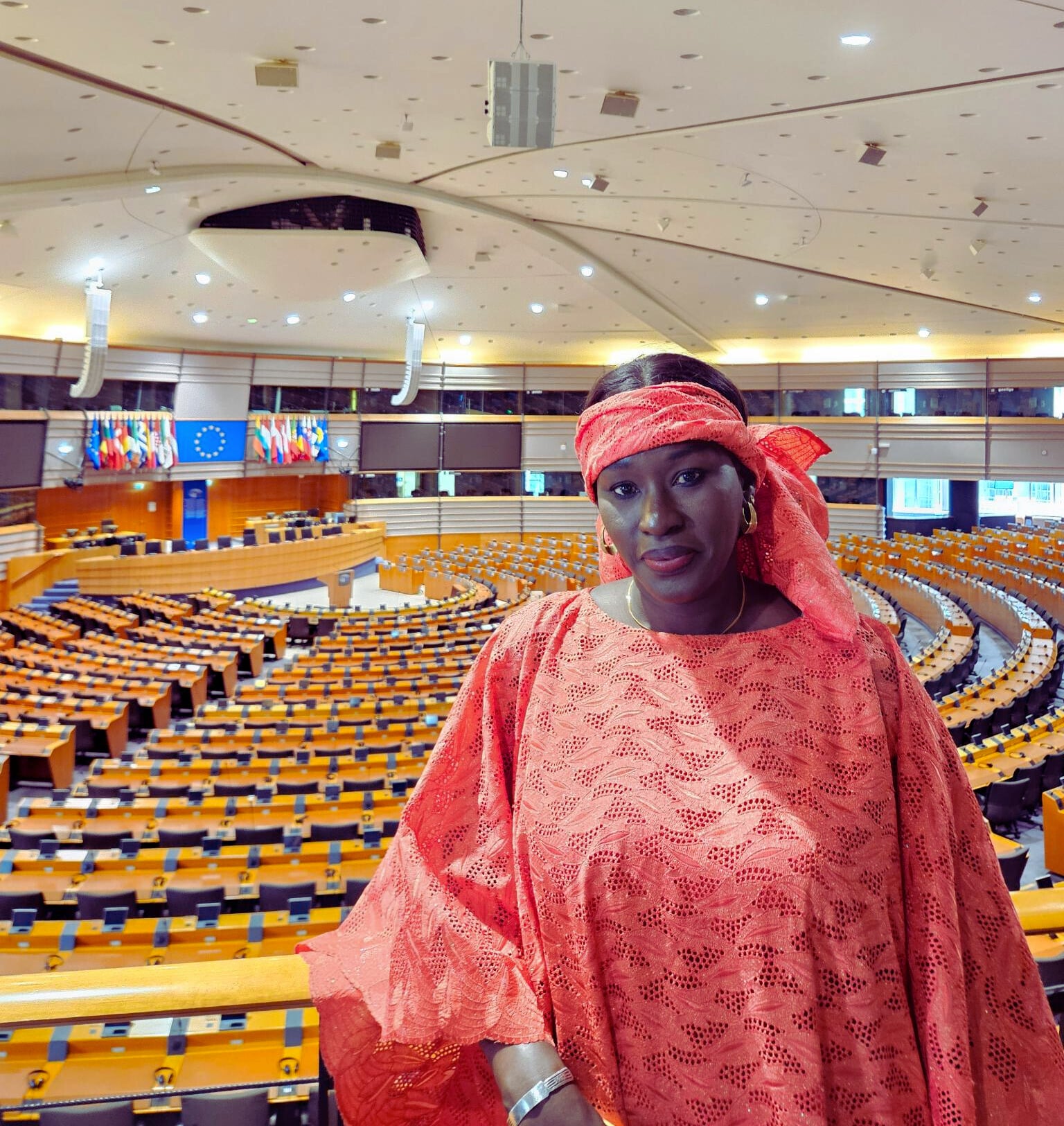“Politics Is Not Power—It’s Responsibility”: A Conversation with Marietou Dieng

↩ Back to WYDE
Earlier this month, Senegalese political leader Marietou Dieng travelled to Brussels to participate in the international roundtable “Local Action to Global Impact – International Support to Democracy and Civil Society in the Next MFF.”
The event, hosted by the European Network of Political Foundations (ENoP), the Friedrich Naumann Foundation Europe, and the Heinrich Böll Stiftung, brought together democracy practitioners, civil society organisations and EU institutions to reflect on how global support for democracy must evolve to meet current geopolitical realities.
Dieng, a former Member of Parliament in Senegal, joined the programme as part of the WYDE Political Parties project—an initiative aimed at empowering youth and women within political parties. She shared with us her political journey, her motivation for public service, and her hopes for the future of leadership in Africa.
What is the one thing you believe must change in your country—and how do you see yourself contributing to that change?
“We lack leaders with both compassion and resilience. We need women and men capable of making humane, balanced decisions in the face of internal and external challenges. Political debate must be more diverse and inclusive—especially when it comes to access to healthcare, education, equal rights and fair governance.”
“When I served in Parliament, my work over just two years made a real difference in my community—something that was recognised without any grand gesture. It was simply thanks to ethics, transparency, and the will to serve. I plan to run for municipal office in 2027 and for President of the Republic in 2029. I believe women bring inclusive leadership that can redefine cultural norms and make politics more accessible to all.”
As a young political voice, what does leadership mean to you today?
“Leadership means making a real impact—on individuals, communities, and national policy. It’s about being present, listening actively, and offering inclusive solutions that reflect who we are culturally, socially, and spiritually. It means understanding issues like gender equality, social justice, and development not just theoretically, but through real action.”
What motivates you to stay involved in politics, even when it’s difficult or uncertain?
“My political commitment came from witnessing injustice. I believe politics should help improve lives—that’s its very purpose. Despite the cultural and social constraints, especially for women in Africa, I remain engaged out of responsibility and hope.”
“Even in uncertainty, I continue. Because through politics, we can change lives: improving access to basic services, supporting community development, and inspiring the next generation.”
If you could speak to your peers across Africa, what would you say to inspire them to enter politics?
“Leadership is not about gender—it’s about capacity, vision, and empathy. Women are born leaders. We’ve seen how African women, when given the opportunity, transform their communities. We need mentoring networks, access to leadership training, and space to speak. Women must not wait for change—they must lead it.”
Ten years from now, how would you like your country to be different because of your political work?
“In ten years, I hope to serve my country as President. I want to implement a political project built on three pillars: human capital (health, education, culture, citizenship), strong institutions and local governance, and an economy centred on food security, youth employment, and sustainable infrastructure.”
“But beyond that, I want to help build a Senegal where leadership reflects the full diversity of our population—because that is how we ensure everyone’s needs are met.”
Marietou Dieng’s conviction is contagious. She doesn’t speak in abstractions—she speaks from experience, and from a deep-rooted belief that politics is not a playground for privilege, but a platform for justice. In a time when democratic systems around the world are facing renewed pressures, voices like hers offer not only hope—but direction.
“Politics is not power, it’s responsibility. It’s where we shape the future—not only for ourselves, but for those who come after us.”
Marietou Dieng is a Senegalese former Member of Parliament and public health professional. She holds Master’s degrees in Microbiology–Biosafety and in Project Management, and is currently pursuing a degree in Diplomacy and International Relations. During her time in the 14th legislature of the Senegalese National Assembly (2022–2024), she served as Vice-President of the Health, Population, Social Affairs, and National Solidarity Committee, and was also a member of the Committees on Foreign Affairs, Senegalese Abroad and African Integration, as well as Sustainable Development. Her work bridges public service, health equity, and inclusive political participation.